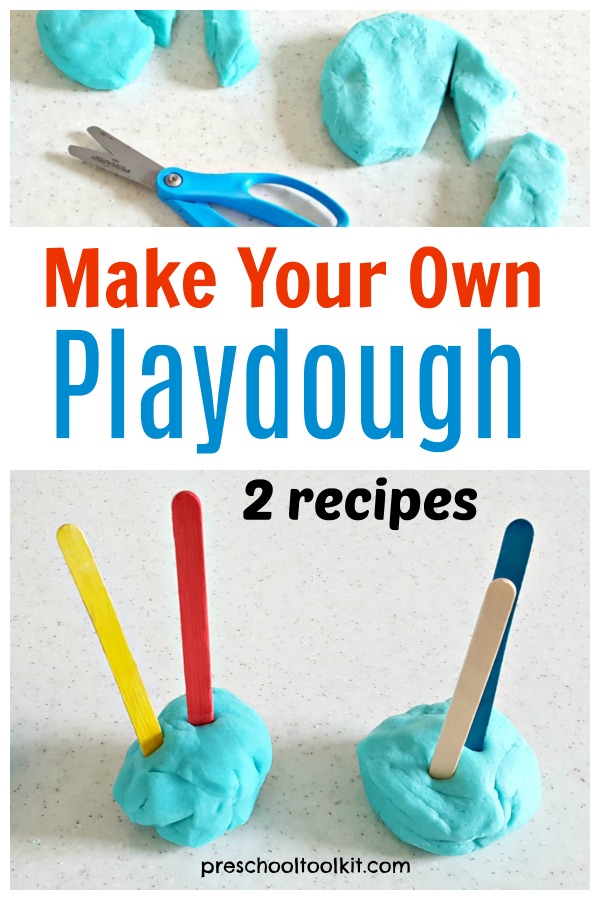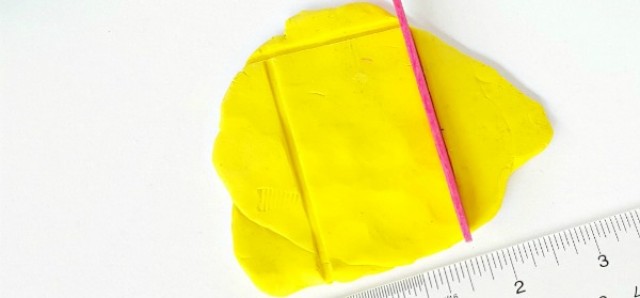Easy Homemade Play Dough Recipes
Homemade play dough is easy to make with simple recipes and everyday ingredients. This post provides two traditional recipes you can complete in minutes. The resulting play dough can be used over and over for kids activities.
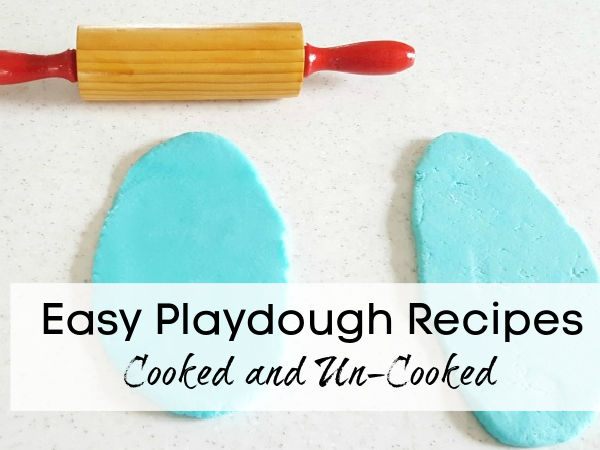
Privacy and Disclosure
for information on cookies and affiliates
Looking for a recipe for success? You've got it with playdough!
These play dough recipes are popular options that have stood the test of time.
- I provide two basic recipes for making play dough, one cooked and one uncooked.
But while both types provide awesome play value for kids, there are noticeable differences in the two results.
Read an interesting comparison of cooked and uncooked playdough after the recipes.
Recipes for homemade play dough
Playdough is a fun material for kids activities: it has interesting texture and color, and it's practically mess-free.
Store-bought and homemade playdough are both good options for kids activities.
In this post I concentrate on the homemade version.
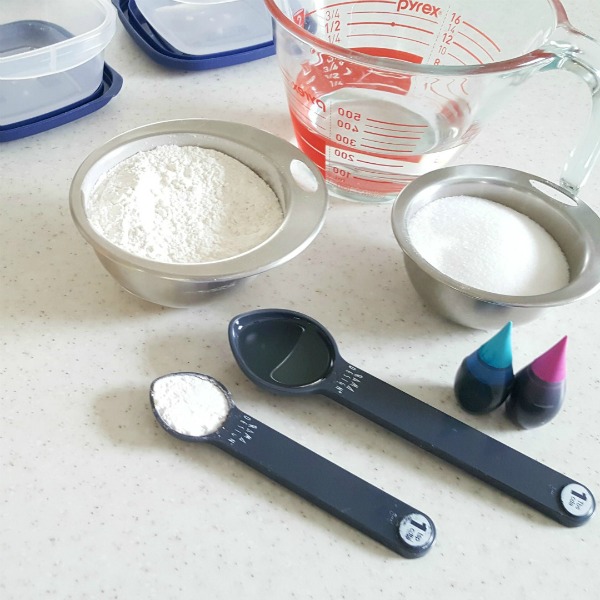
Ingredients for these recipes:
- Recipe 1: flour, salt, cream of tartar, cooking oil, water and food coloring.
- Recipe 2: flour, salt, oil, water and food coloring
You will also need air-tight containers for storing the play dough.
Recipe 1. Cooked play dough
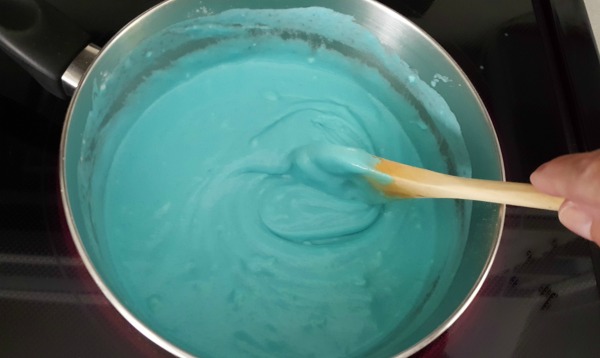
Mix 1 cup flour, 1/2 cup salt, 2 teaspoons cream of tartar together in a saucepan.
Add 1 tablespoon oil and 1 teaspoon food coloring to 1 cup water. Stir liquid into dry ingredients.
Cook uncovered over medium heat, stirring with wooden spoon.
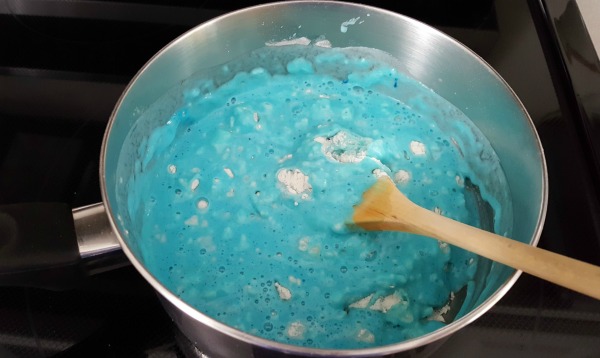
The mixture will start to thicken in the pan as you stir over medium heat.
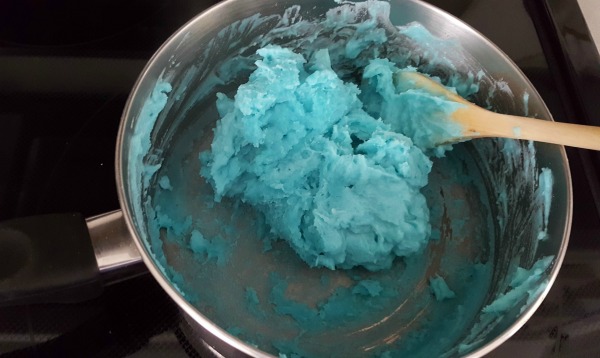
The mixture is ready to remove from the heat when it pulls away from the sides and forms a sticky ball.
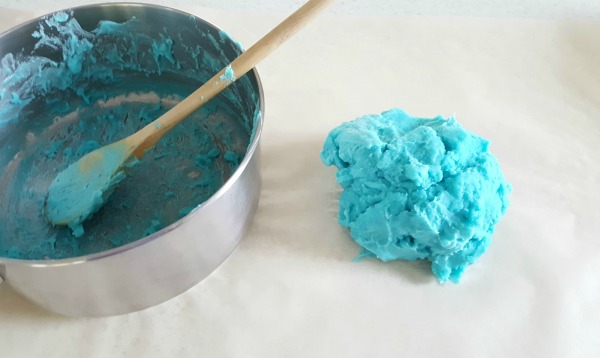
Turn the dough onto parchment paper or counter top, then knead to a smooth consistency.
Recipe 2. Uncooked play dough
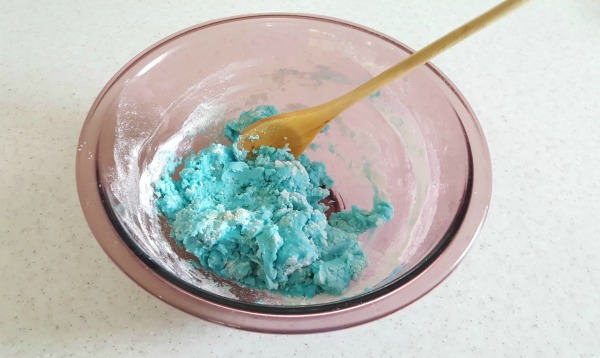
Mix 1 cup flour and 1/2 cup salt in a bowl.
Add 2 tablespoons oil and 1 teaspoon food coloring to 1/2 cup hot tap water.
Stir liquid into dry ingredients.
Knead the dough on parchment paper or counter top until it reaches a smooth consistency.
3. How do the results compare?
Here are a few early observations:
- The cooked play dough is soft but firm, with smooth texture and consistency.
- The uncooked play dough has a slightly grittier texture and is less dense and stickier to work with.
The following images will show some examples of how each dough performed.
Playdough, Slime and More Pinterest Board
Both recipes result in dough that can be cut, shaped and rolled.
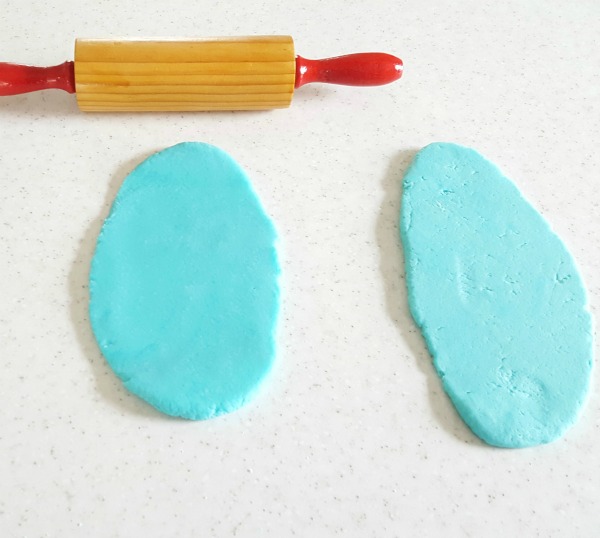
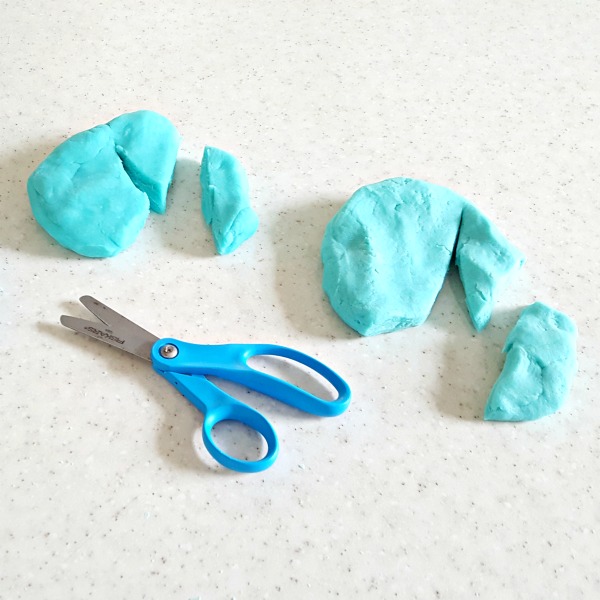
Either dough can be cut with scissors, flattened with a rolling pin, cut with cookie cutters, or rolled into a ball in the palm of the hand.
The cooked play dough retains its shape and texture.
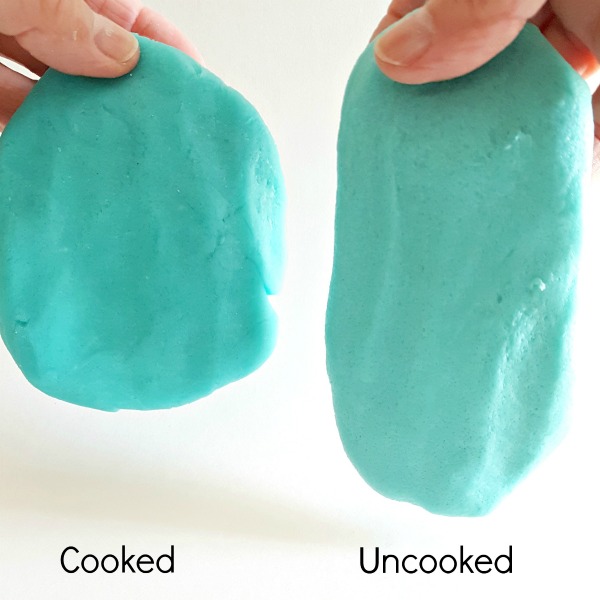
The uncooked dough droops while the cooked play dough stays intact.
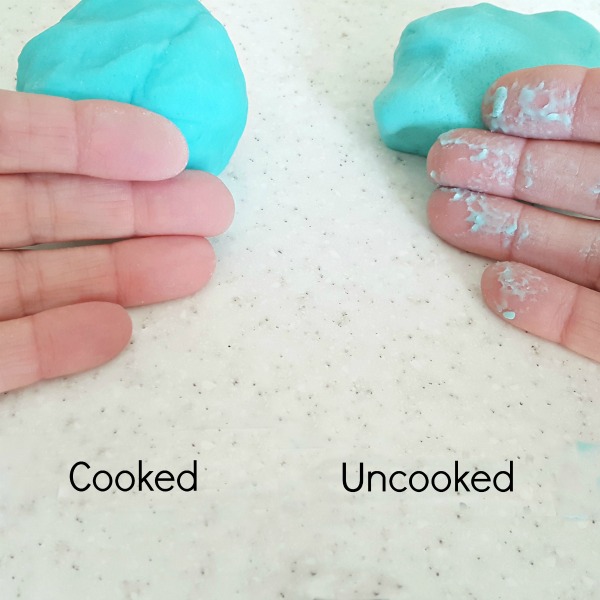
The uncooked dough is stickier to work with than the cooked dough. You can add a bit of flour to the counter or table surface where you are working.
Results after 1 month
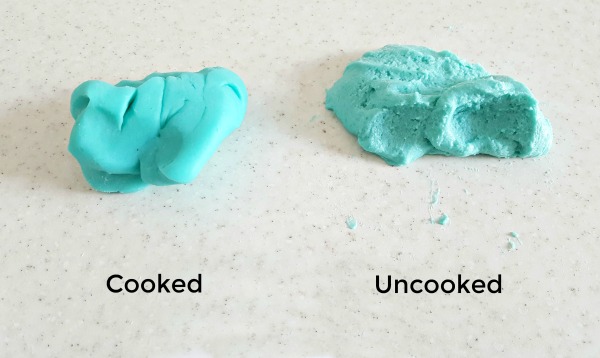
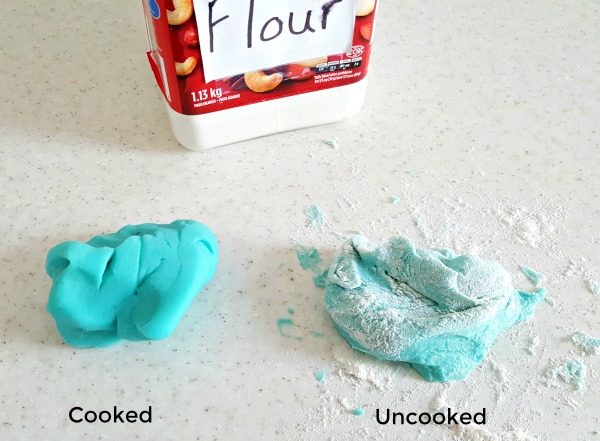
I kneaded some flour into the uncooked dough to prevent it from sticking to hands and table top.
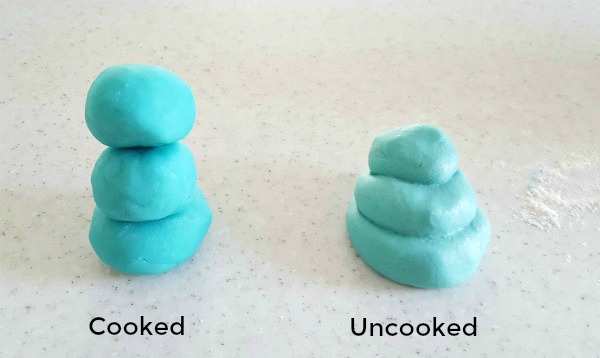
This is how the dough looks after 30 days. The cooked recipe produces dough that is firm enough to support a snowman. The uncooked dough sinks down right away.
But that would be perfect for a melting snowman, right?
Results after 4 months
Cooked and uncooked play dough can be stored in air tight containers for several weeks. It's often recommended to store homemade play dough in the refrigerator. I'm a bit surprised that these both lasted as long as they did at room temperature without odor or discoloration. Either way, you will eventually have to make a new batch.
You might have different results depending on variables such as: ingredient measurements; storage; amount of usage.
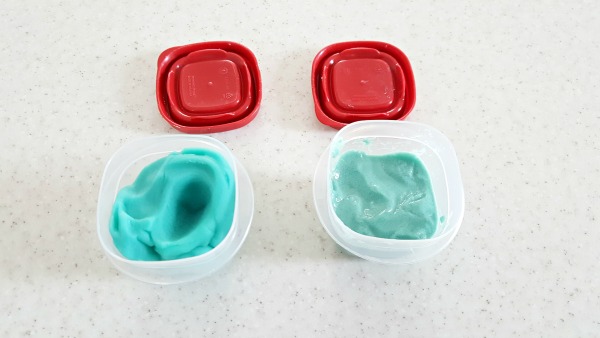
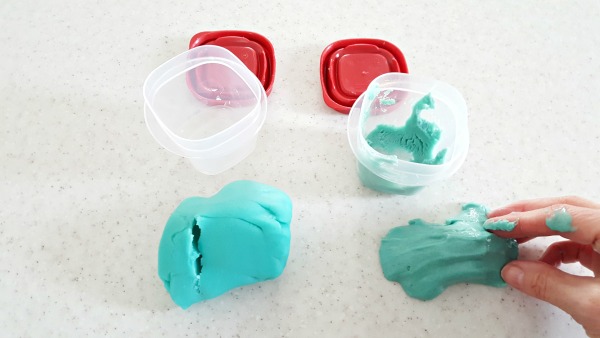
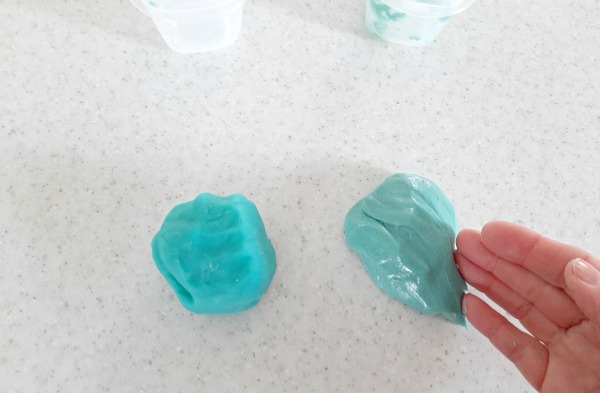
The cooked play dough on the left is easy to remove from the container, while the uncooked is sticky.
The play dough was used occasionally, but not every day, during the four months.
The texture of the cooked play dough is the same as the day it was made. The uncooked play dough lost most of its stickiness with just a little kneading - no flour was added.
You can see a difference in the appearance of the cooked and uncooked versions in the photo - the uncooked play dough on the right has a shiny surface. It also has a softer texture.
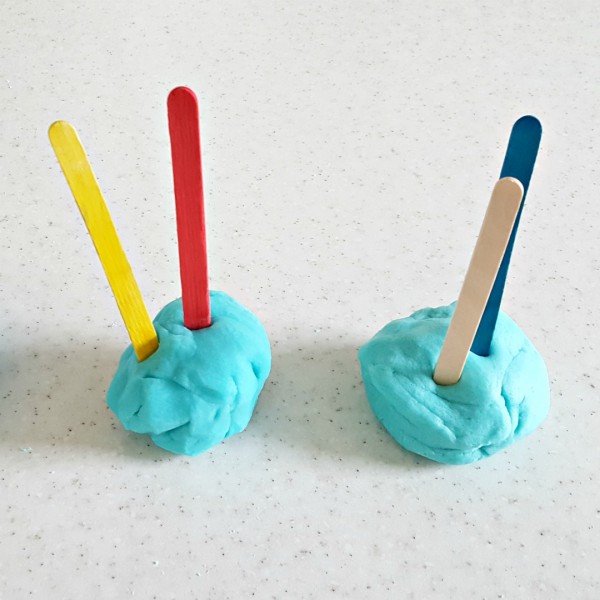
Regardless of recipe, homemade play dough is a valuable option for creative play times.
